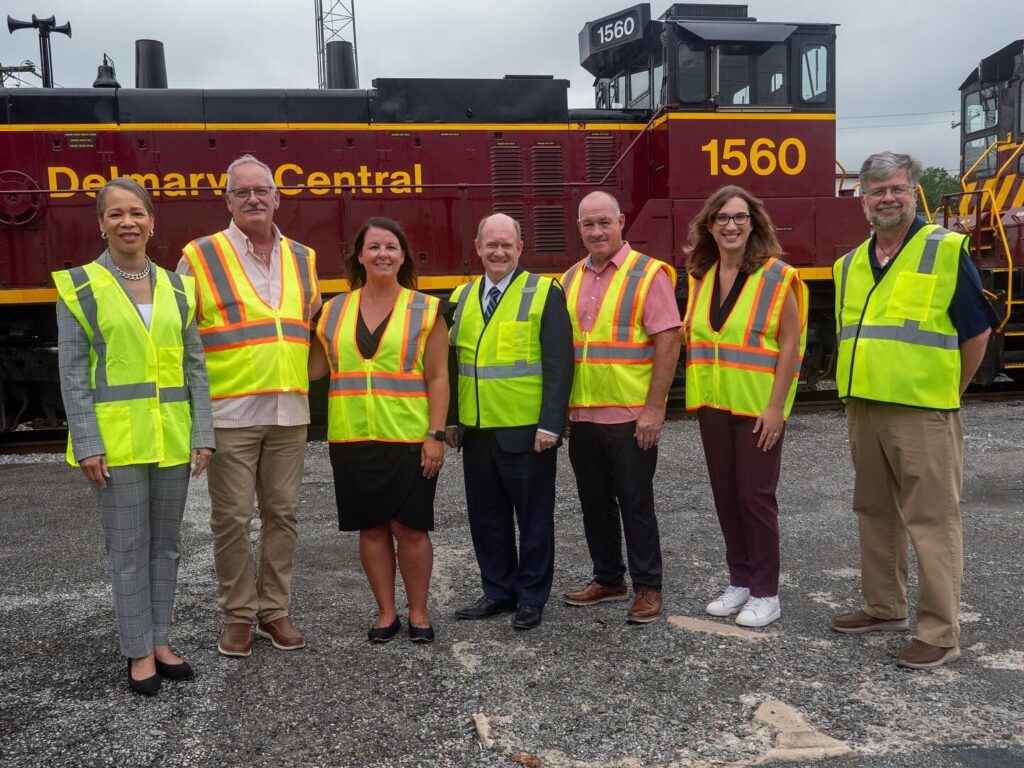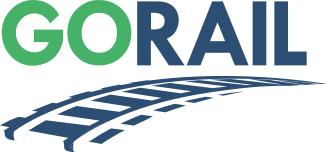HARRINGTON, DELAWARE – U.S. Senators Lisa Blunt Rochester and Chris Coons, along with U.S. Representative Sarah McBride, toured the Delmarva Central Railroad (DCR) facility in Harrington on August 20 as part of a day-long tour across the state. The visit underscored how rail connections are driving growth across Delaware—supporting industrial development, creating opportunity for producers, and relieving local roads.
The event began with a briefing led by Mike Tetler, Executive Vice President & CIO of Carload Express, which operates DCR. Tetler highlighted the railroad’s service to agricultural producers and manufacturers, noting that DCR hauls about 30,000 carloads annually, a figure that has grown substantially as the railroad reinvests in its operations and future growth. He also emphasized the impact of an $18.8 million federal CRISI grant, which is funding upgrades across DCR territory in Delaware and Maryland to improve safety, track conditions, and reliability for shippers.
Following the briefing, the delegation donned safety equipment and climbed aboard a locomotive. Each lawmaker got a firsthand look inside the locomotive cab, where engineers control train operations. The hands-on experience provided a unique perspective on the complexity and safety measures involved in moving freight by rail.

“Our federal delegation was able to secure a major federal grant to help Delmarva Central Railroad make important upgrades and deliver more reliable service,” said Sen. Lisa Blunt Rochester, a member of the Senate Transportation Committee. “That’s a win for producers and supply chains here in Delaware and across the region. Every carload moved by rail means fewer trucks on our roads—less congestion for families and more sustainable transportation overall.”
Tetler added that Carload Express has reinvested nearly 60% of its revenue in recent years to expand service and modernize infrastructure, underscoring the railroad industry’s unique model of private investment in public benefit.
“Railroads like DCR are proud to be partners in safety and growth for the communities we serve,” said Tetler. “Programs like CRISI, the Rail Crossing Elimination (RCE) Program, and Section 130 grade crossing safety funding provide critical resources that, paired with railroads’ own investments, help us continue reducing truck traffic, improving safety, and supporting local economies.”
GoRail emphasized that the visit highlights the importance of freight rail in national transportation policy.
“As Congress shapes the next surface transportation legislation, rail’s story is clear: we need policies that strengthen the rail network through competitive grant programs like CRISI and RCE, promote safety and innovation by allowing the deployment of emerging technologies, and ensure fairness across modes so rail can continue moving efficiently and affordably,” said Betsy Cantwell, Vice President at GoRail. “When rail thrives, taxpayers, businesses, and communities all benefit.”


